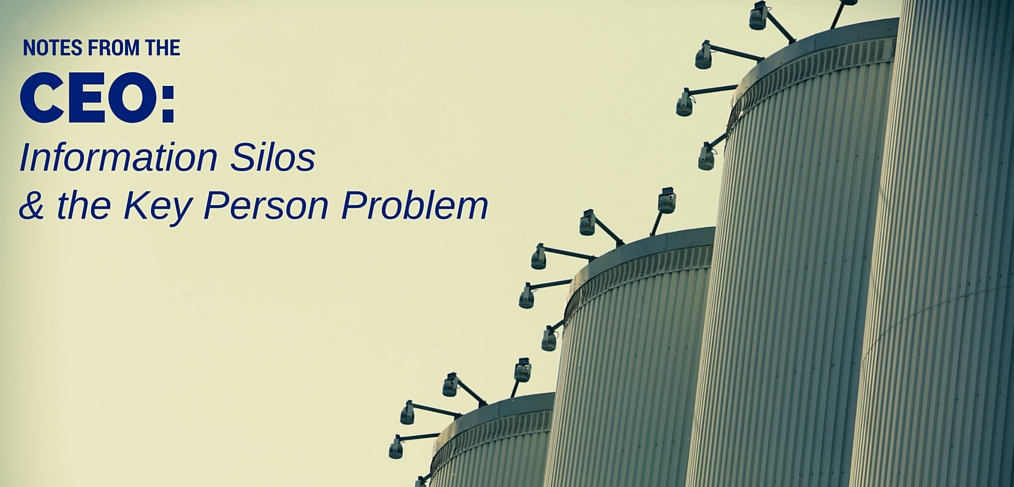In a large organisation, there are often multiple points of contact with key stakeholders: your engagement team, your media team, your government relations team, your field workers, your call centre, and your contractors. The list goes on.
Regardless of this complexity, stakeholders will often view your organisation as a single entity and become frustrated at not being remembered and at having to explain themselves repeatedly.
If building strong relationships with your stakeholders is important to you, it will quickly become obvious that sharing stakeholder knowledge across your organisation is a fundamental need.
If you accept the premise that Knowledge Sharing is good, what is bad? Who are the enemies of Knowledge Sharing?
1. The Key Person
During our working lives, we all encounter people with a magnificent command of interpersonal relationships. People who not only remember everyone they’ve met, but everything about them: what’s important to them, who the people in their lives are, what annoys them and so on.
I envy these people.
From a stakeholder engagement perspective, people with exceptional interpersonal skills add enormous value to your organisation. By creating close connections with your stakeholders, these people not only protect your reputation they enhance it.
However, they also represent a significant risk.
Change, in the form of changes in life priorities, changes in organisational structure, changes in funding and corporate priorities can see a key person disappear from an organisation very quickly. If there is no system in place to manage their relationship knowledge, this incredible asset will disappear with them too.
2. The Information Silo
Information Silos arise when groups of people or systems within an organisation fail to share knowledge freely. This failure can occur for any number of reasons:
- Incompatible Systems
Many of us will have worked in ‘evolving’ organisations that have developed a number of systems that have redundant functions. Whether through mergers, acquisitions or just poor communication it’s not unusual for a large organisation to have two, three or more systems performing the same function. And it’s not at all unusual for these systems to not be able to talk to each other.
This can be extremely frustrating for users who need to aggregate information from multiple sources to answer a simple question or who are forced to key data into multiple systems. - Internal Politics
Some people just aren’t good sharers. - Security and Privacy
There are sometimes very good reasons why some people can’t see some information. However, good user access protocols can usually handle this sort of issue.
We think that the real value of Consultation Manager lies in empowering our clients to share relationship knowledge across their entire organisation. By doing this, we help you to ensure that whenever you walk into a meeting with a key stakeholder, you have the whole history of your organisation’s interactions with that stakeholder at your fingertips.
If relationship knowledge is to be truly shared, it must be systematic and it must form part of your corporate ethos. It’s sometimes a challenge but it’s always worthwhile.

Colin McEown, CEO
Learn how organisations in your industry manage their stakeholder and community engagement data. Download the free information sheet for your industry Whitepaper.
RELATED READING
Notes from the CEO: Data Security, Sovereignty, our commitment to you
Notes from the CEO: Why Go Cloud?
7 Benefits (and some Common Pitfalls) of Stakeholder Databases
DIY or Buy? How to Choose a Stakeholder Management System


